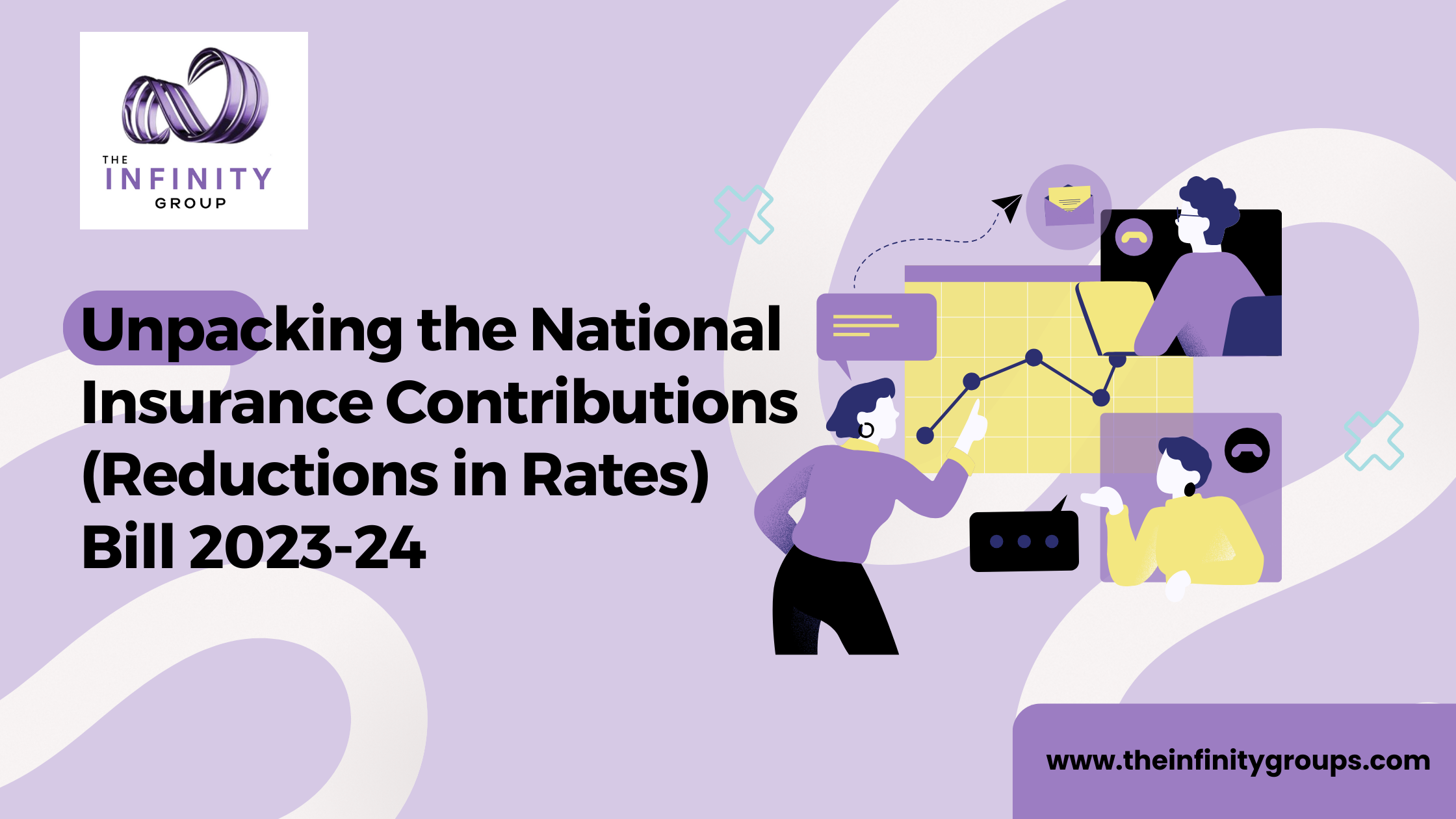The National Insurance Contributions (Reductions in Rates) Bill 2023-24 has taken centre stage, bringing significant changes to National Insurance contributions (NICs). Let’s delve into the purpose of the bill, its implications on public finances, and how it affects millions of taxpayers across the UK.
Purpose of the Bill: A Threefold Change
Chancellor Jeremy Hunt, in the 2023 Autumn Statement, unveiled three pivotal changes:
- Cut in Employee NICs (Primary Class 1): The main rate drops from 12% to 10%, effective from January 6, 2024.
- Cut in Self-Employed NICs (Class 4): A reduction from 9% to 8%, set to take effect from April 6, 2024.
- Cancellation of Class 2 NICs Requirement: Self-employed individuals are relieved from the flat-rate NICs charge when annual profits exceed £12,570, starting April 6, 2024.
These changes are expansive, covering the entire UK.
Impact on Public Finances: A Balancing Act
The Office for Budget Responsibility (OBR) projects a reduction in tax receipts by £9.4 billion in 2024/25, escalating to £10.0 billion by 2028/29. This significant tax cut aims to benefit approximately 27 million employees and over 2 million self-employed individuals.
Impact on Taxpayers: Who Stands to Gain?
The OBR’s analysis breaks down the impact on taxpayers:
- Employee NICs Cut: Estimated to benefit 27.3 million employees in 2024/25, with average annual gains of £304 for basic-rate taxpayers, £647 for higher-rate taxpayers, and £707 for additional-rate taxpayers.
- Self-Employed NICs Cut: Expected to benefit 2.1 million self-employed people in 2024/25, with average annual gains of £117 for basic-rate, £322 for higher-rate, and £358 for additional-rate taxpayers.
- Class 2 NICs Requirement Removal: Estimated to benefit 1.9 million individuals in 2024/25, with an average annual gain of £186 per person.
It’s noteworthy that this tax cut counteracts a substantial portion of the personal tax rises announced in the 2021 Spring Budget and the 2020 Autumn Statement. These rises, including the freeze in personal allowances and higher-rate thresholds, are predicted to generate £44.6 billion in 2028/29.
In essence, the National Insurance Contributions (Reductions in Rates) Bill 2023-24 introduces a dynamic shift in the UK’s tax landscape, offering relief to millions while addressing fiscal challenges.

